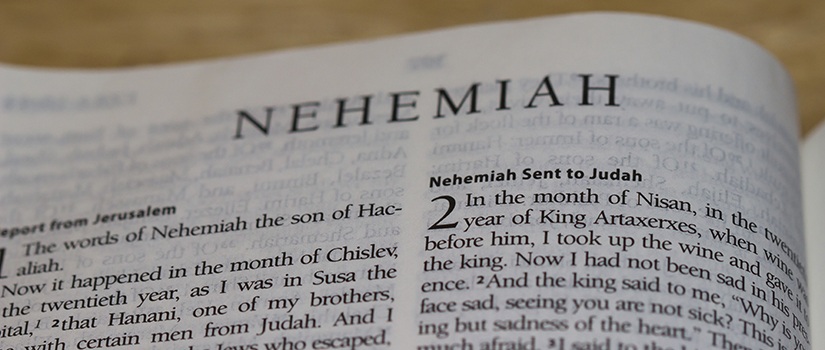A Short History Of The Samaritans
Matthew 10:5. “These twelve Jesus sent forth, and commanded them, saying, Go not into the way of the Gentiles, and into any city of the Samaritans enter ye not:”
John 4:9. “Then saith the woman of Samaria unto him, How is it that thou, being a Jew, askest drink of me, which am a woman of Samaria? for the Jews have no dealings with the Samaritans.”
The full time for preaching the gospel to the Gentiles did not come. It was proper that it should be first preached to the Jews, the ancient covenant people of God, and the people among whom the Messiah was born. He afterward gave them a charge to go into all the world, (Matthew 28:19).
And into any city of the Samaritans enter ye not, The Samaritans occupied the country formerly belonging to the tribe of Ephraim and the half-tribe of Manasseh. This region was situated between Jerusalem and Galilee; so that in passing from the one to the other, it was a direct course to pass through Samaria. The Jews chose a route that by-passed the Samaritans by crossing the Jordan River and following it until that was passed their land and then crossed back over the River to go up to Jerusalem.
The capital of the country was Samaria, formerly a large and splendid city; It was situated about fifteen miles to the north-west of the city of Shechem or Sychar, and about forty miles to the north of Jerusalem…
Sychar or Shechem was also a city in the limits of Samaria. These people were formerly composed of a few of the ten tribes of Israel, and a mixture of foreigners. The foreign nations, which were transplanted in Samaria, make a mixture of religions.
Israel was a name given to Jacob, (Genesis 32:28, 29) because, as a prince, he had power with God; because he persevered in wrestling with the angel that met him, and obtained the blessing. The name is derived from two Hebrew words, signifying Prince and God. He was one of the patriarchs; a progenitor of the Jewish nation; and the names Israel and Israelites were given to them as the name Romans were in honor of Romulus, and the name Americans after Americus Vespuccius. Israel was the name given to the whole nation till the time of Jeroboam, when only the ten tribes that revolted received the name, probably because they were a majority of the nation, the other part of the nation was known as Judah, which surrounded Jerusalem.
The ten tribes which revolted became the northern section of the country and was called Israel. The southern kingdom was called Judah. When the ten tribes (The northern kingdom) were carried away into captivity to Babylon, the king of Assyria sent people from Cuthah, Ava, Hamath, and Sepharvaim, to inhabit their country, (Read, 2 Kings 17:24 & Ezra 4:2-11). It was a mixed multitude from the conquered nations. These were the ancestors of the Samaritans of Jesus’ day.
These people at first worshipped the idols of their own nations (2 Kings 17:29). But being troubled with lions (2 Kings 17:25), which had increased greatly while the country remained uninhabited, they supposed it was because they had not honored the God of the country. A Jewish priest was therefore sent to them from Babylon (2 Kings 17:27), to instruct them in the Jewish religion. They were instructed partially from the books of Moses; but still retained many of their old rites and idolatrous customs, and embraced a religion made up of Judaism and idolatry, (Read, 2 Kings 17:26-29 &41.)
The grounds of difference between the two nations were the following:
(1.) The Jews, after their return from Babylon, set about rebuilding their temple. The Samaritans offered to aid them (Ezra 4:2). The Jews, however, perceiving that it was not from a love of true religion, but that they might obtain a part of the favors granted to the Jews by Cyrus, rejected their offer (Ezra 4:3). The consequence was that a state of long and bitter animosity arose between them and the Jews which lasted centuries and still existed in Jesus’ day. Nehemiah 2
(2.) While Nehemiah was engaged in building the walls of Jerusalem, the Samaritans used every art to thwart him in his undertaking, (Nehemiah 6:1-14).
(3.) The Samaritans at length obtained leave of the Persian monarch to build a temple for themselves. This was erected on Mount Gerizim, and they strenuously contended that that was the place designated by Moses as the place where the nation should worship. Sanballat, the leader of the Samaritans, constituted his son-in-law, Manasses, a high priest. The religion of the Samaritans thus became perpetuated, and an irreconcilable hatred arose between them and the Jews.
(4.) Afterwards, Samaria became a place of resort for all the outlaws of Judea. They received willingly all the Jewish criminals and refugees from justice. The violators of the Jewish laws and those who had been excommunicated betook themselves for safety to Samaria, and greatly increased their numbers and the hatred which subsisted between the two nations.
(5.) The Samaritans received only the five books of Moses and rejected the writings of the prophets and all the Jewish traditions. From these causes arose an irreconcilable difference between them, so that the Jews regarded them as the worst of the human race, (John 8:48) and had no dealings with them, (John 4:9).
Our Savior, however, preached the gospel to them afterward, (John 4:6-26) and the apostles imitated his example, Acts 8:25. The gospel was, however, first preached to the Jews.
Compiled By, James L. Thornton









